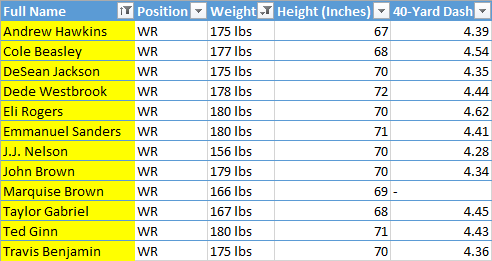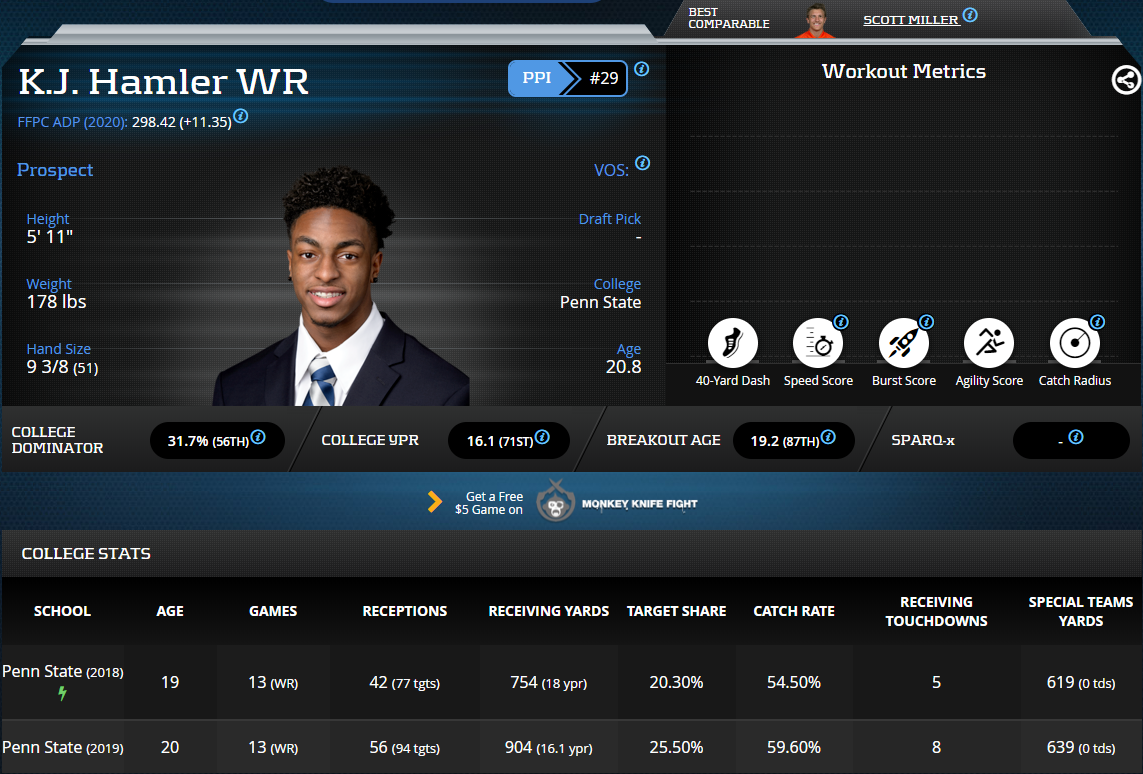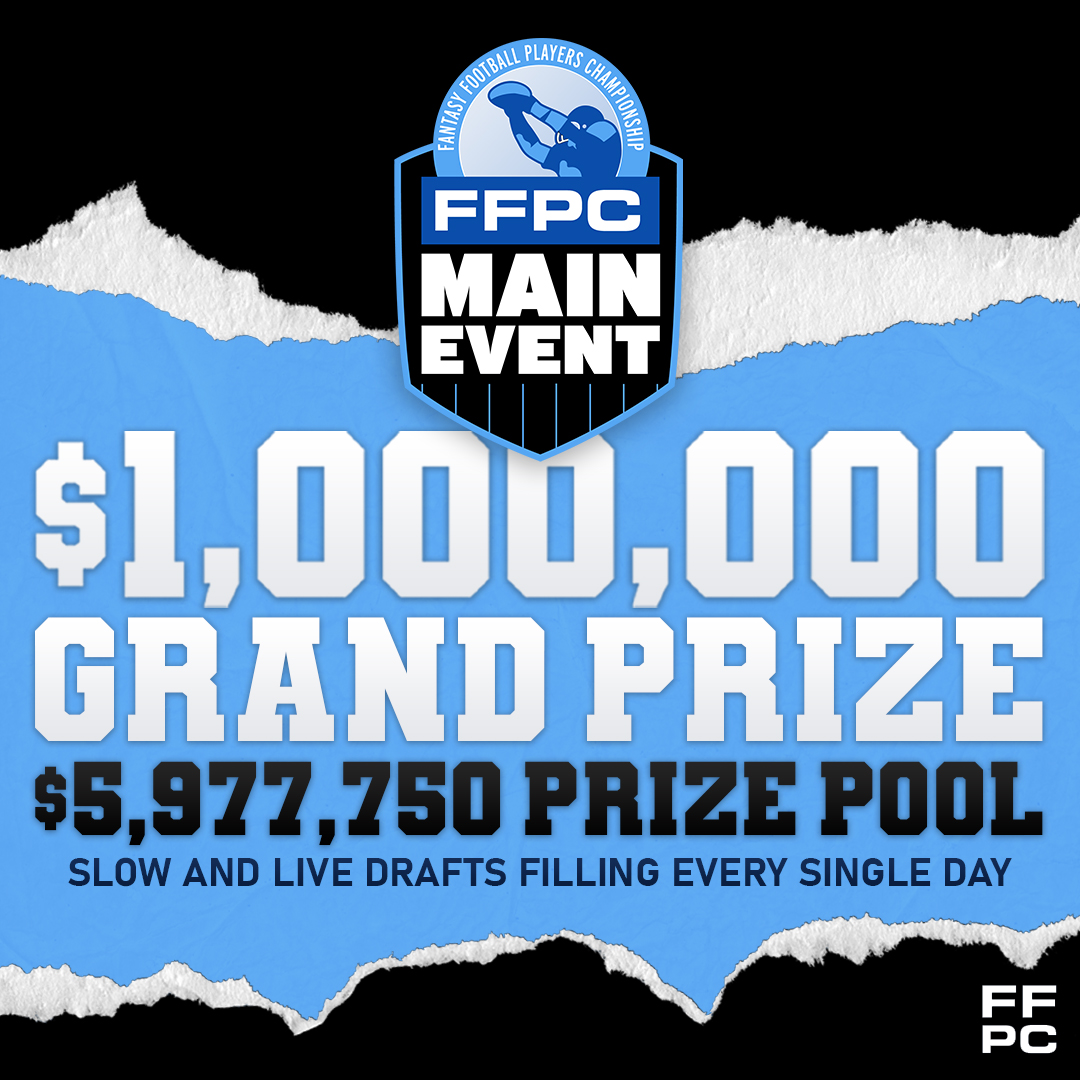K.J. Hamler enters the NFL draft as a black-box prospect. He tweaked his hamstring before the Combine and failed to partake in all but one of the drills. His plan to test at his Pro Day was also shelved because of the COVID-19 pandemic. As a result, the only athletic testing number we have for him is 15: the amount of times he lifted 225 pounds on the bench press. Much of his success at the NFL level is dependent upon elite-level speed. Below is a list of wide receivers weighing 180-pounds or less that averaged 10 Fantasy Points Per Game in at least one season since 2013.
What’s striking about the above list is that the median 40-Yard dash time is 4.41 seconds. Further, only two of the wide receivers on this list recorded a time above 4.45 seconds. Thus for Hamler to have any realistic shot at fantasy relevance during his NFL career, he has to have 4.45 wheels or better.
Luckily for us dynasty players, Hamler and his agent are aware of how important speed is to his NFL success. They utilized GPS tracking data from his college career to compare with NFL players. His fastest plays in game speed as a freshman and junior ranked No. 8 and No. 13 when compared to the fastest players on the NFL field this past season. Of the players in the Top 15 in game speed, the slowest offensive player is Nick Chubb, who recorded a 4.52 40-time. The fastest offensive player is Curtis Samuel, who ran a 4.31. Unfortunately, this range of outcomes with respect to Hamler’s 40-time doesn’t add much clarity to his speed.
Check out KJ Hamler on PlayerProfiler’s Updated Rookie Rankings:
The only thing clear about Hamler’s profile is his elite 19.2 (87th-percentile) Breakout Age and big play ability, including his special teams prowess. He broke out for the Nittany Lions in his redshirt sophomore season, amassing 754 yards on 42 receptions for five touchdowns. Aside from his Breakout Age ranking in the Top 10 among rookie receivers, he also ranks inside the Top 15 with 16.1 (71st-percentile) college yards per reception, which gives credence to his perceived elite speed.
Overall, Hamler profiles as a risky rookie pick because of an incomplete athletic profile and small margin for error as a result of his size. However, his age-adjusted college production makes him a worthy gamble towards the back half of the second round in rookie drafts in the event he has elite speed.









